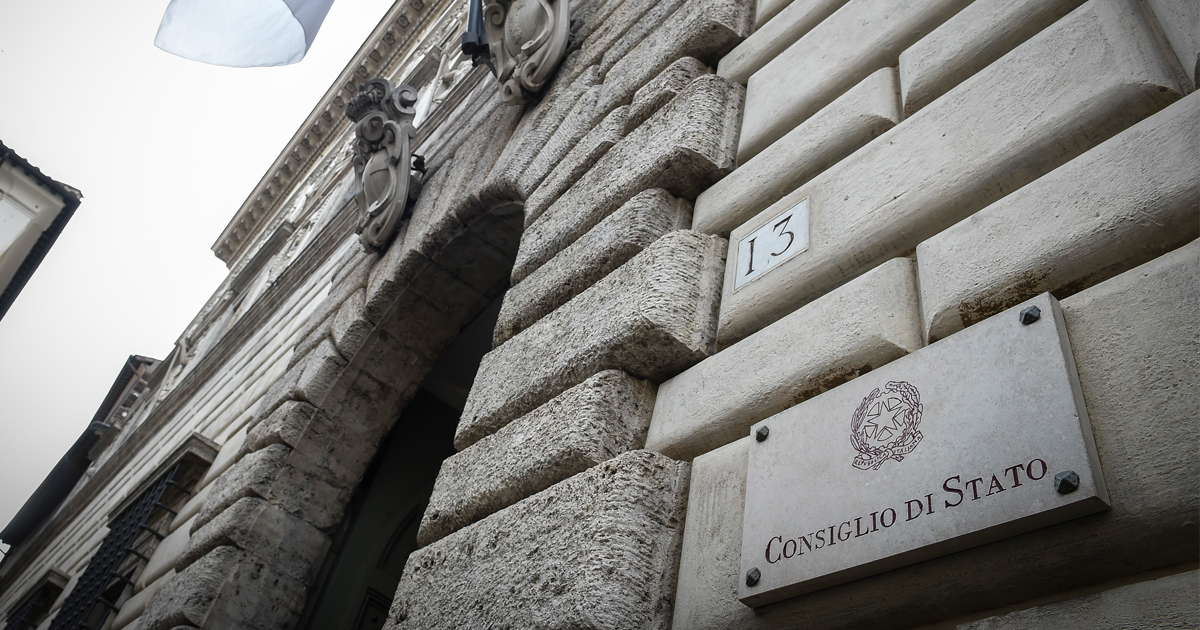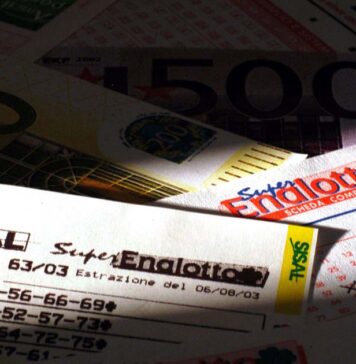The Council of State rejected - through a ruling - the appeal presented by a company in the gaming sector against the Presidency of the Council of Ministers and the Ministry of Health, which requested the reform of the ruling of the Regional Administrative Court for Lazio (Section One ) with which the business was denied compensation for financial damages deriving from the alleged illegitimacy of the art. 1, paragraph 10, letter. l), of the Prime Ministerial Decree of 14 January 2021, in the part in which it expressly provided that "the activities of game rooms, betting rooms, bingo halls and casinos are suspended, even if carried out within premises used for different activities", to the extent in which the forced closure was also imposed on gaming halls located in the part of the national territory classified in the yellow zone.
Below is the text of the ruling:
“1. (...), today's appellant, is the manager of a bet and wager collection activity, using AWP and VLT devices, with the correct authorization issued by the Rome Police Headquarters on 18 July 2019.
1.1. With appeal registered at no. 4923/2021 RG, (...) brought an action for compensation for financial damages pursuant to art. 30 cpa, deriving from the alleged illegitimacy of the art. 1, paragraph 10, letter. l), of the Prime Ministerial Decree of 14 January 2021, in the part in which it expressly provided that "the activities of game rooms, betting rooms, bingo halls and casinos are suspended, even if carried out within premises used for different activities", to the extent in which the forced closure was also imposed on gaming halls located in the part of the national territory classified in the yellow zone.
1.2 The request of the appellant in first instance was, in particular, aimed at ascertaining, incidentally, the illegitimacy of the art. 1, paragraph 10, letter. l), of the Prime Ministerial Decree of 14 January 2021.
1.3. With the only ground of appeal (...) he therefore denounced the illegitimacy of the acts for violation of the law, as well as for excess of power in different respects, lack of preliminary investigation and proportionality.
1.4. The Presidency of the Council of Ministers appeared before the court, requesting his exclusion from the proceedings, and the Ministry of Health, the latter resisting the appeal.
1.5. With sentence no. 7893 of 1 June 2022, the Court rejected the appeal, on the basis of the deemed absence of the objective element of the illicit act, given the full legitimacy of the affected decree as confirmed by jurisprudence and also considering the lack of proof of the recurrence of the subjective element (State Council, section VI, 24 April 2018, n. 2495).
1.6. Specifically, the first judge deemed the conduct (right in the documents) of the intimated Administration legitimate, as it was based on the criterion of maximum prudence and consistent with the aims of health policy, thus fully justifying the closure of the activities of the gaming halls in compliance also on the basis of consolidated jurisprudence.
2. He appealed against this decision (...), and requested its reform, with the consequent acceptance of the request for compensation, contesting its erroneousness also by referring to the content of order no. 1061/2021, made in a precautionary appeal of similar appeal (n. 1551/2021 RG), where the need is highlighted for "precautionary measures to be adopted on the basis of targeted scientific assessments by the technical authority".
2.1. The appellant then insists on the existence of the requirement of the subjective element, i.e. the fault of the Ministry of Health, disregarded by the first judge, because he believes that the Administration operated in the absence of the necessary verification of the technical and/or scientific analysis of the risk, which alone could, in his opinion, justify the closure of the place falling in the yellow zone (Prime Ministerial Decree of 14 January 2021).
2.1. The provisions of the previous Prime Ministerial Decree of 13 October 2020, now superseded by the contested decree, together with the absence of scientific assessments and the risk of contagion relating to activities carried out in the yellow zone, would have - according to the appellant - confirmed the element of fault of the defendant administrations and - also with reference to this subjective requirement - the incorrect assessment of the Court.
2.2. The Presidency of the Council of Ministers and the Ministry of Health appeared in court.
2.3. At the hearing on October 5, 2023, the case was held for decision.
3. The appeal of (…) must be rejected.
3.1. Today's appellant, (...), complained, in the first degree of judgment, the illegitimacy of the acts with which the appealed administration, in pursuing the health policy objectives to stem the extraordinary pandemic situation, inhibited the activities, including that of (...), gaming rooms, also for establishments falling within the "yellow zones", in the alleged absence of scientific evidence, thus undermining, in his opinion, also the legitimate expectation on the opening of such rooms in relation to the evolution of the pandemic phenomenon.
3.2. Generally speaking, it should be noted that it is a consolidated orientation in jurisprudence (Cons. Stato, Sec. III, sentence 3 June 2022, n. 4536) that according to which compensation for damage is not only an automatic and constant consequence of the jurisdictional annulment of an administrative provision (in the case under examination non-existent, given the direct request for compensation in relation to the Prime Ministerial Decree of 14 January 2021), but postulates the verification of all the requirements of the offense (conduct, fault, causal link, harmful event, injustice of the damage).
3.3. And, in fact, with reference to the last of the indicated requirements, for unjust compensationable damage, pursuant to art. 2043 cod. civ., does not mean any economic loss, but only unjust economic loss, or one which occurs in a manner contrary to the law (Cons. Stato, Sec. III, n. 4536 of 2022).
3.4. It should then be noted that, when we talk about the responsibility of public administration, it is necessary to distinguish the responsibility that derives from mere material behaviour, so to speak, detached from the exercise of power - whose jurisdiction belongs to the ordinary jurisdictional authority - from that , however, in which the alleged prejudice is attributable to a hypothesis of even direct liability which, as in the present case, is independent of a previous annulment, as it is referable to a provisional act deemed immediately harmful to the legal sphere of the applicant (in this case the Prime Ministerial Decree 14 January 2021).
3.5. It would therefore reveal a liability of the Administration deriving directly from an act issued by it; a hypothesis certainly different from that which originates from the behavior of the administrative authorities which the jurisprudence - following the sentence of the Constitutional Court n. 191 of 2006 - defines it as administrative behaviour, precisely to highlight that the source of the damage is not the administrative act, but rather a conduct which presents, albeit indirectly, a connection with the exercise of power.
Having said this, it is necessary to start from the assessment contained in the affected sentence, which constitutes the objective perimeter within which the compensation claim brought in court by (...) must be decided.
3.6. The first judge - as anticipated - rejected the request for compensation, on the assumption of the non-existence of both requirements (objective and subjective) to support the claim for compensation of the appellant company. Not the objective element (recte: decree from which the attached prejudice would immediately derive), as the Court considered the Prime Ministerial Decree of 14 January 2021 to be fully legitimate, in the same way as the case law itself (for all, Tar Lazio, Sede di Roma, sentence. no. 3712 of 31 March 2022); not the subjective element, since "the action of the public administration was inspired by the criterion of maximum prudence, correctly balancing the opposing needs of protecting public health and the free exercise of economic activity".
3.7. (...) contests, however, this ruling because it notes, to the contrary, that the Court not only ignored the rulings of the precautionary order placed in support of the request for compensation, taking into account the absence of the scientific analysis of the risk, also taking into consideration of the period of time that has elapsed since the onset of the pandemic, which - in his opinion - would have necessarily had to give way to the existence of specific scientific data, to justify the absolute blockade or otherwise of gaming halls; but also for having allowed the administration through the regulatory provisions that have followed one another over time, even in the territories classified in the red zone, the carrying out of the activity of tobacconists for the collection of games.
3.8. But as mentioned, in terms of compensation for damage, deriving directly or indirectly from the exercise of a public function, verification of all the requirements of the offense (conduct, fault, causal link, harmful event, etc.) cannot be ignored. .
3.9. On the other hand, it is the burden of the appellant pursuant to art. 2697 cc, as the Court well recalled, provide the judges with proof of both the existence and the extent of the damage complained of, given that in liability actions for damages the dispositive principle operates fully and is not tempered by the specific acquisition method of the annulment action.
3.10. And again, to better define the regulatory framework of reference, art. 64 cpa provides that the onus is on the parties to provide the evidence that is available to them regarding the data underlying the questions and exceptions where the officious acquisition powers concern only the information and documents useful for the purposes of deciding that are available to the public administration.
3.11. This fact alone allows us to conclude that, in the present case, there is no valid proof of the extent of the objective assumption and, therefore, of the damage complained of, which establishes - together with the fault and the injustice of the damage - the responsibility of the administration.
3.12. In the case under examination by the Board, today's appellant limited himself to alleging the illegitimacy of the Prime Ministerial Decree of 14 January 2021 - an act which was not challenged by (...) - and to recall both the monocratic decree and the precautionary order referring to another similar one dispute, concerning the same burdened Prime Ministerial Decree which - although unfavorable to the appellant - would, in his opinion, have highlighted the need for the ordered closure to be supported by a scrupulous scientific evaluation by the technical authority responsible for evaluating the " risk analysis".
3.13. Well, the Board believes that, in the case in question, the conditions required by the art. 2043 cc, starting from the objective element, taking into account that first of all the causative source of the damage, identified by the appellant in the decree of 14 January 2021, is not apparent, which the jurisprudence, as highlighted in the narrative, had already considered fully legitimate (TAR Lazio ruling Rome no. 3712/2022, for which no appeal was lodged).
3.14. Nor does the fact that the analysis of the scientific assessments by the Technical Authority to justify the persistence of the closure of the gaming halls lead to distinct and different conclusions, given that - leaving aside the merely precautionary nature of the measures invoked by the appellant - the same jurisprudence of the Constitutional Court, which intervened on several occasions, on the legitimacy of the pandemic management models and the system of sources, as well as on other relevant aspects (judgements no. 37 of 2021; no. 198 of 2021; no. 127 of 2022; n. 15 and n. 16 of 2023) considered the restrictions imposed by the relevant Prime Ministerial Decrees to be fully legitimate because they were supported by the opinions of the CTS.
3.15. Nor is there any disparity in treatment with regard to other commercial entities (e.g. Tobacconists), given the different purpose and scale of needs which each of the distinct activities are called upon to pursue and satisfy.
4. For the foregoing reasons, the appeal must be rejected, with consequent confirmation of the contested sentence.
5. Due to the interpretative problems specific to the subject of the dispute, there are just reasons to compensate the parties for the costs of this level of judgment as well.
PQM
The Council of State in jurisdiction (Third Section), definitively ruling on the appeal, as proposed in the epigraph, rejects it and therefore confirms the contested sentence".











